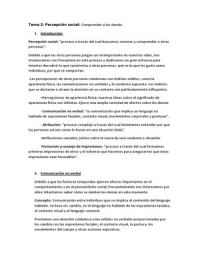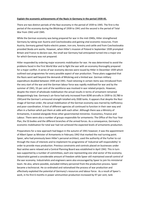Summary
Summary WJEC Level 3 Applied Certificate & Diploma Criminology: Study and Revision Guide - unit two, Criminological Theories
- Course
- Institution
- Book
description of criminal behaviour and deviant behaviour includes the legal definition, social definition, variety of criminal acts, court sanctions formal and informal, police sanctions against crime explanation of types of deviance, norms, morals and values, sanctions
[Show more]






